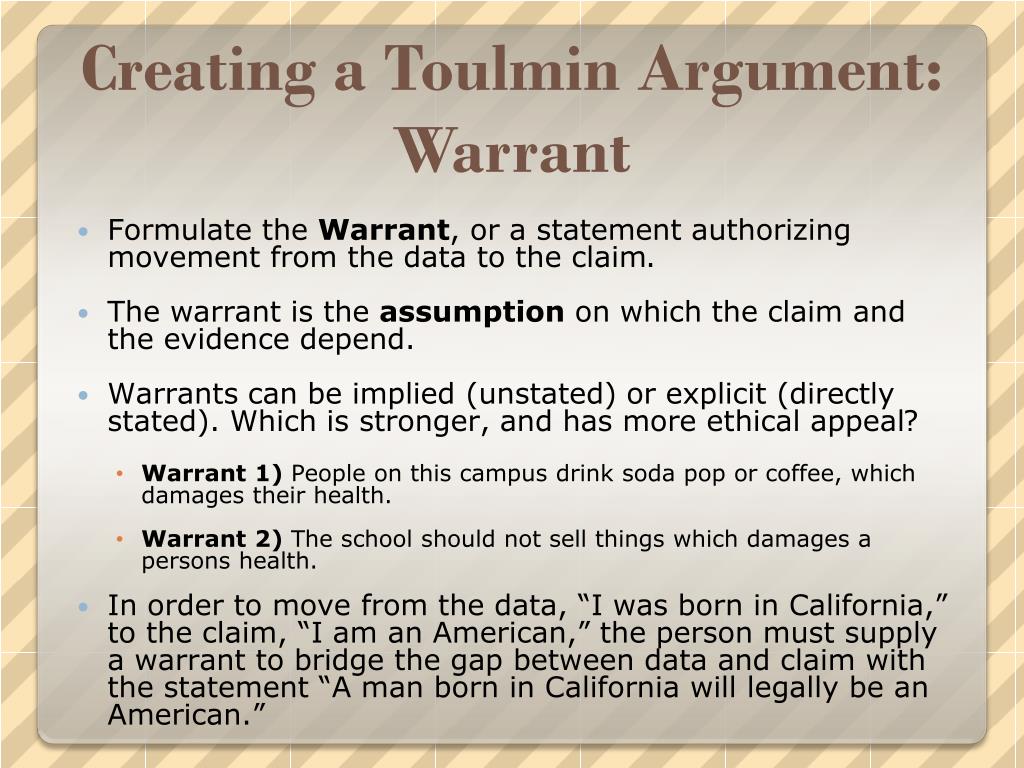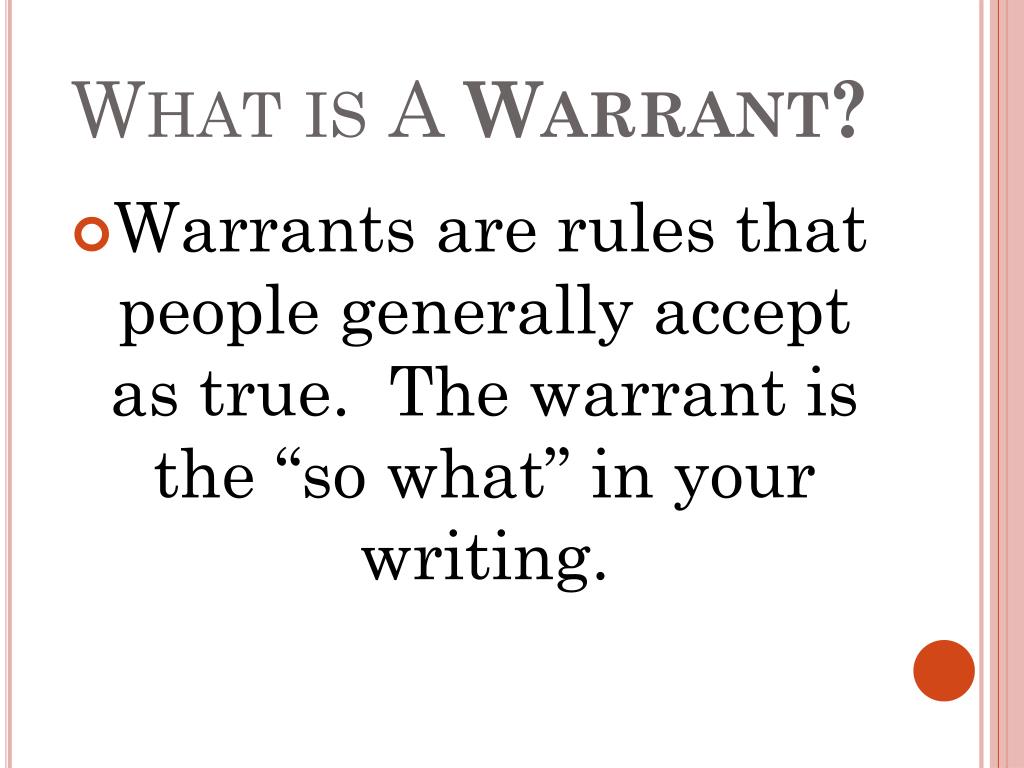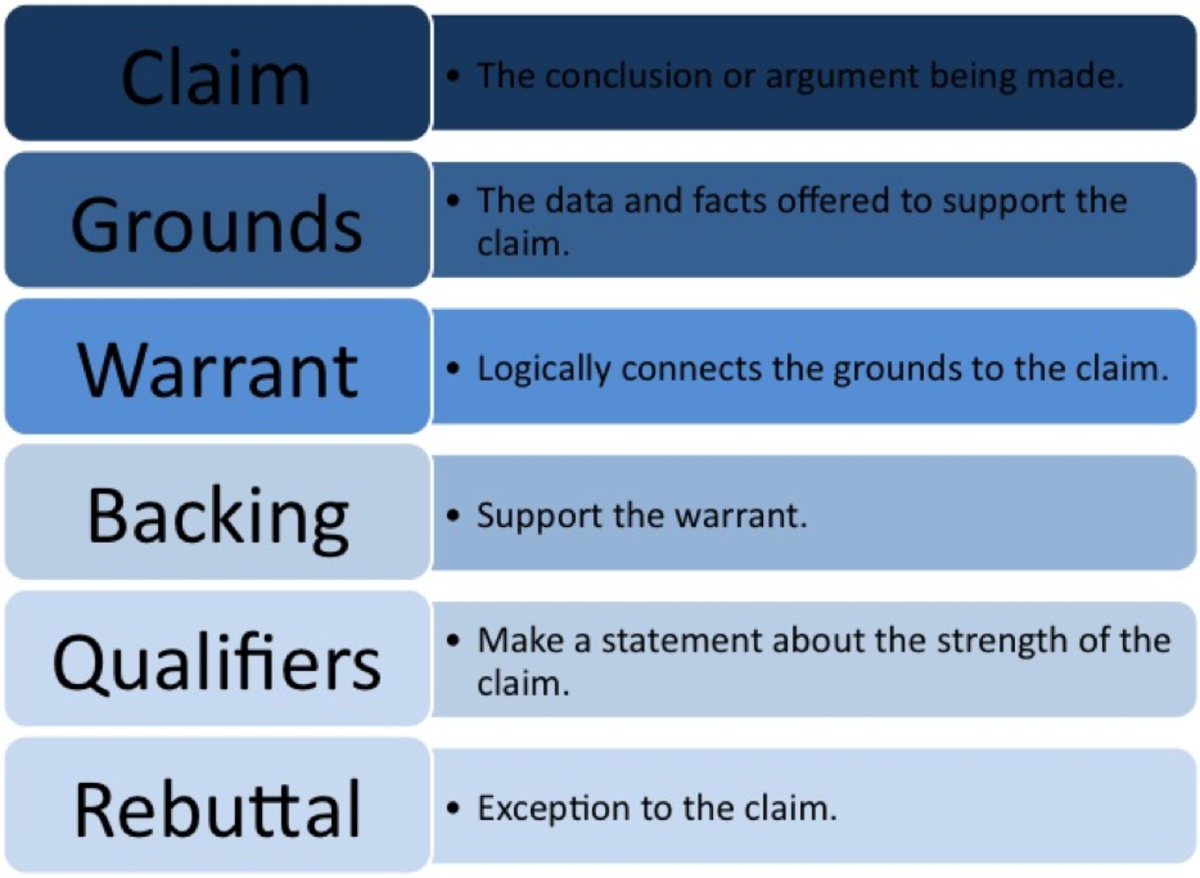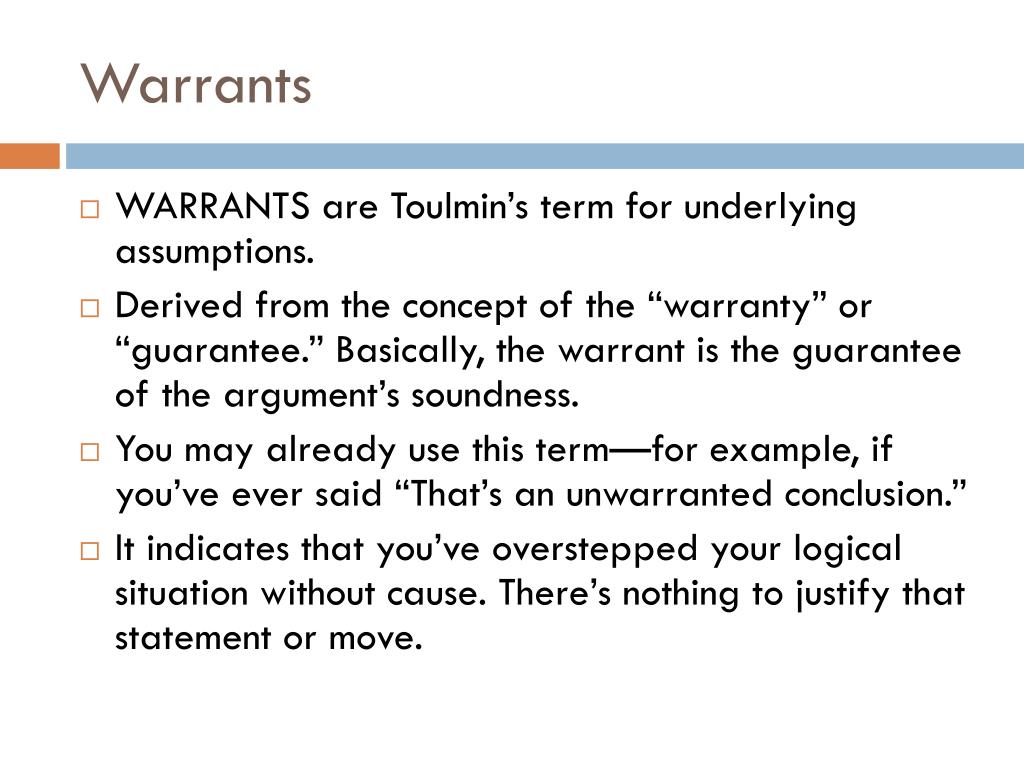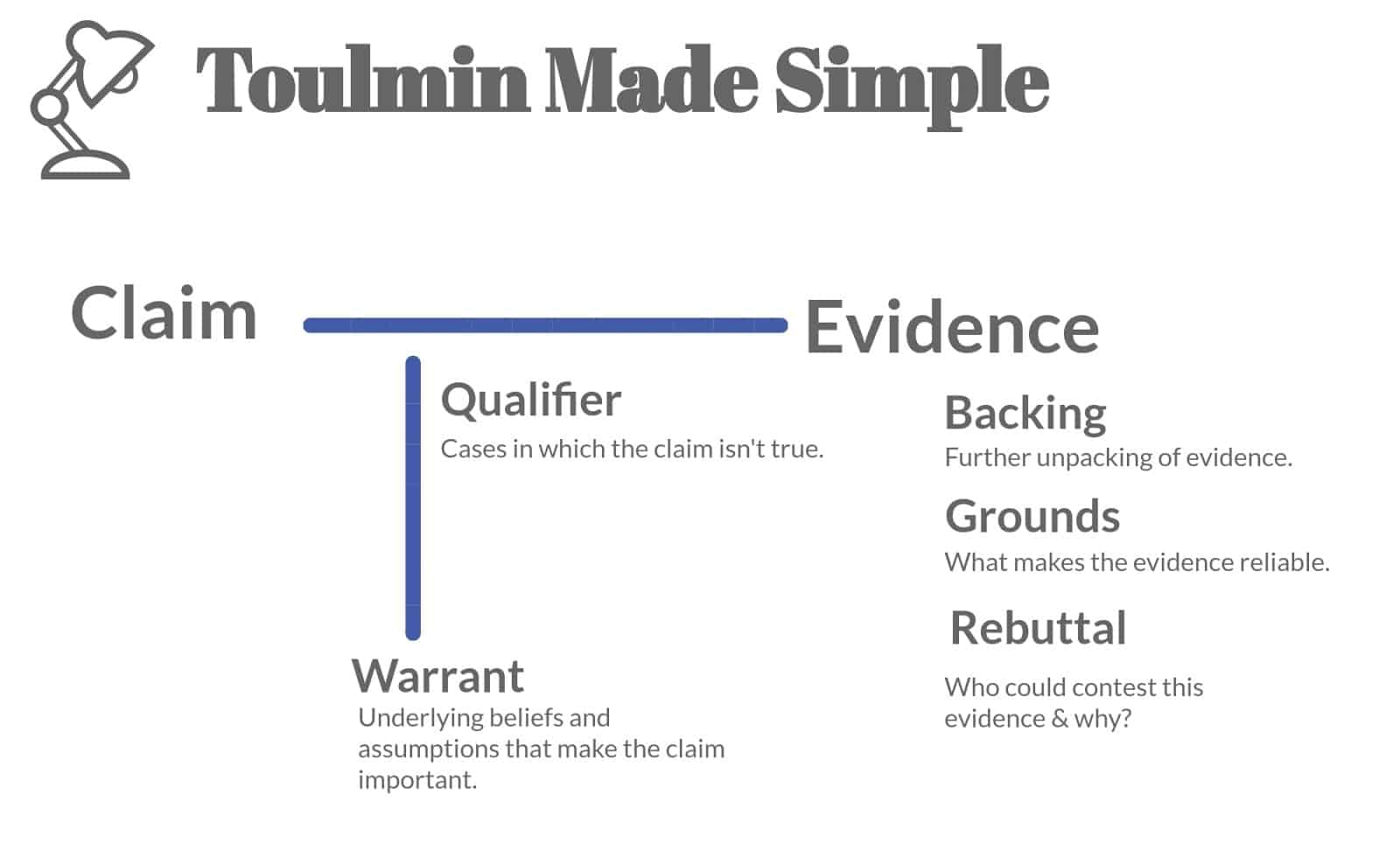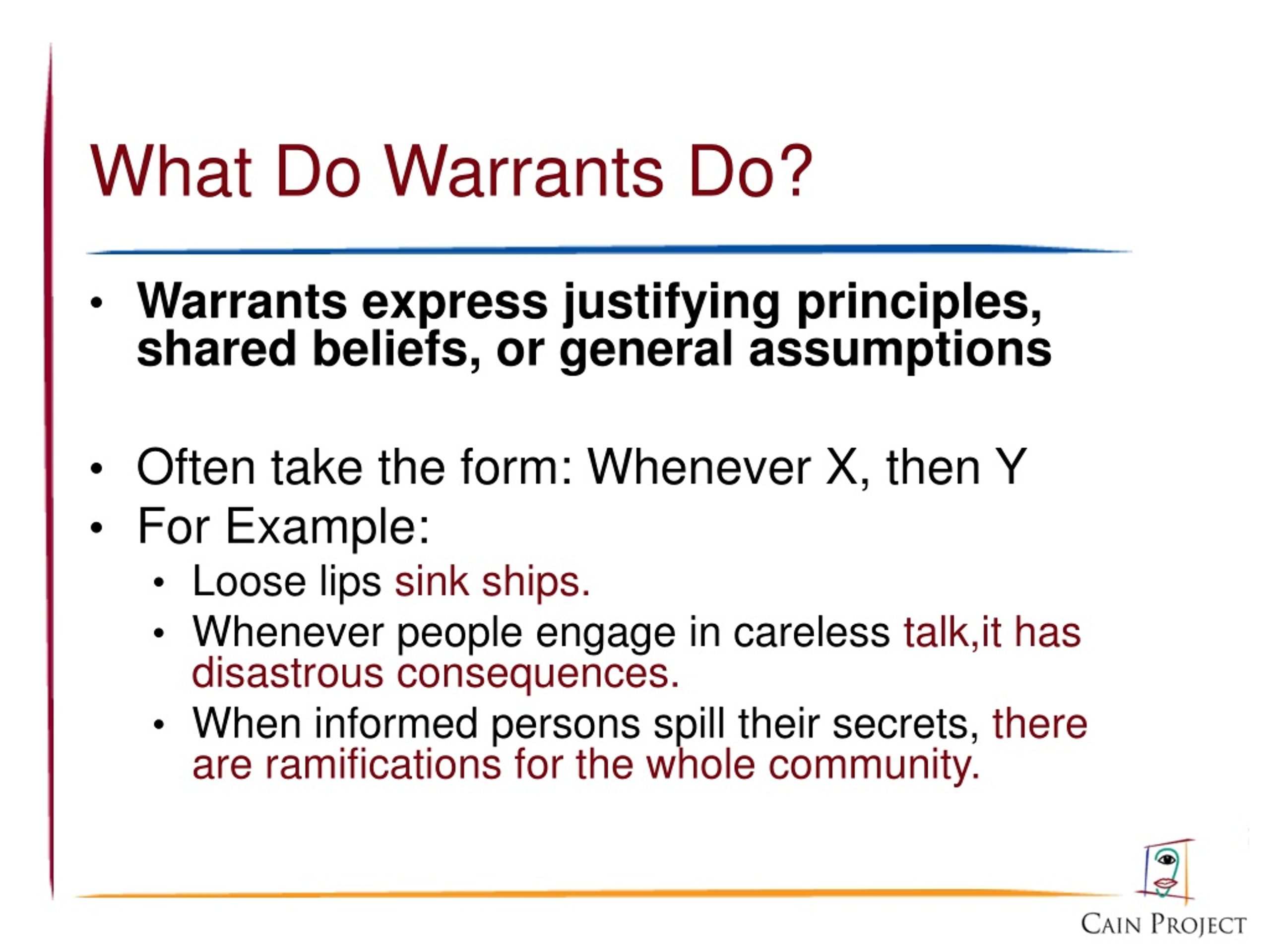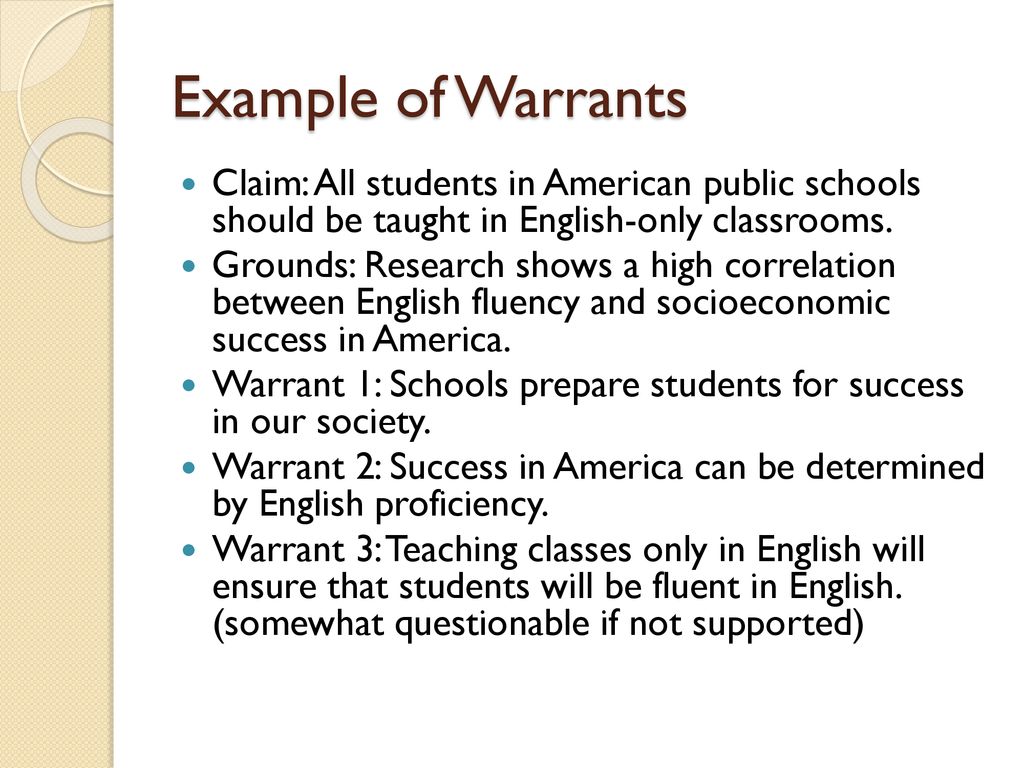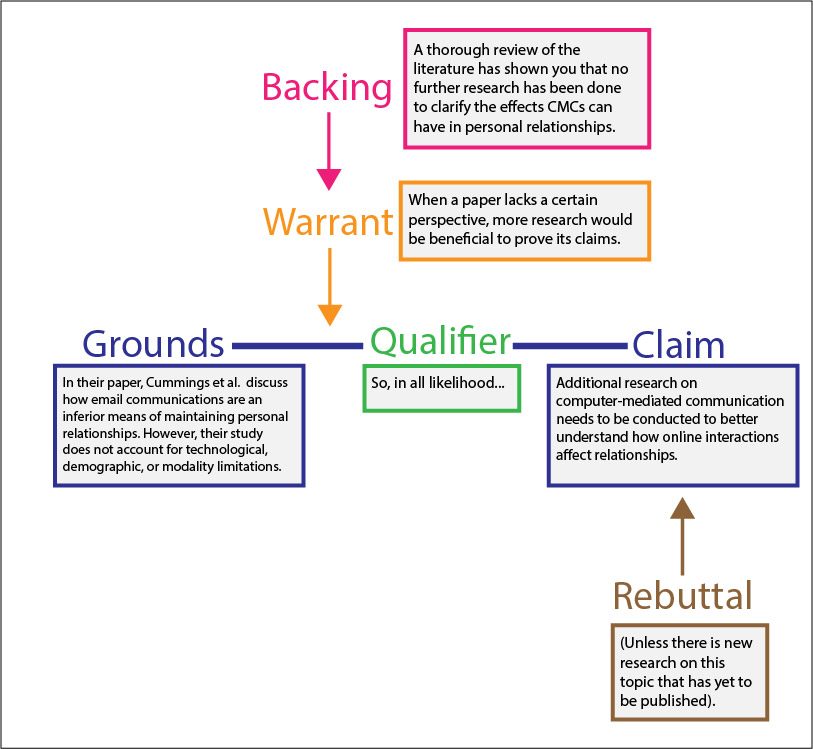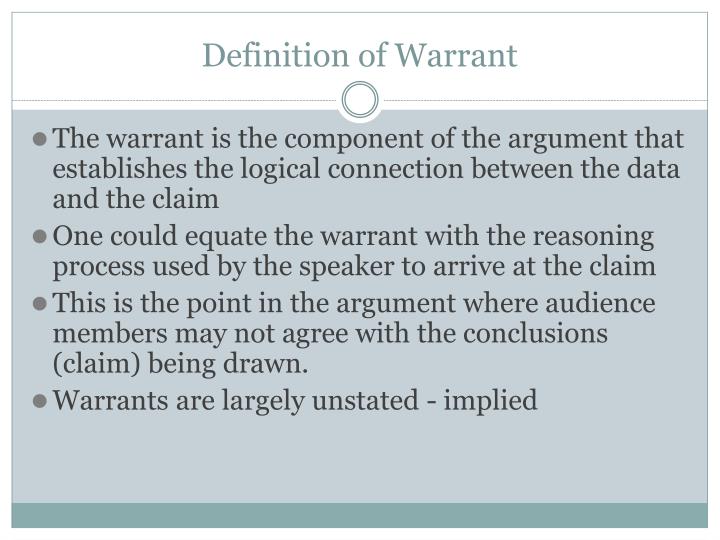Warrant In Argument - In toulmin’s method, every argument begins with three fundamental parts: Second, test and critique your own argument. A claim is the assertion that. The claim, the grounds, and the warrant. Warrants, they say, let[.] you connect a particular claim to particular evidence validly. First, analyze your sources by identifying the basic elements of the arguments being made. They are like explanations that we know to be true (or think. Warrants may be based on logos, ethos or pathos, or values that are assumed to be shared with the listener. In many arguments, warrants are often.
In toulmin’s method, every argument begins with three fundamental parts: Second, test and critique your own argument. They are like explanations that we know to be true (or think. The claim, the grounds, and the warrant. In many arguments, warrants are often. Warrants, they say, let[.] you connect a particular claim to particular evidence validly. A claim is the assertion that. Warrants may be based on logos, ethos or pathos, or values that are assumed to be shared with the listener. First, analyze your sources by identifying the basic elements of the arguments being made.
The claim, the grounds, and the warrant. A claim is the assertion that. In toulmin’s method, every argument begins with three fundamental parts: Warrants, they say, let[.] you connect a particular claim to particular evidence validly. In many arguments, warrants are often. Second, test and critique your own argument. Warrants may be based on logos, ethos or pathos, or values that are assumed to be shared with the listener. First, analyze your sources by identifying the basic elements of the arguments being made. They are like explanations that we know to be true (or think.
PPT Three Types of Arguments PowerPoint Presentation, free download
Warrants may be based on logos, ethos or pathos, or values that are assumed to be shared with the listener. In many arguments, warrants are often. First, analyze your sources by identifying the basic elements of the arguments being made. In toulmin’s method, every argument begins with three fundamental parts: They are like explanations that we know to be true.
PPT Argumentative Writing Based upon the Stephen Toulmin Model For
In toulmin’s method, every argument begins with three fundamental parts: Second, test and critique your own argument. In many arguments, warrants are often. Warrants may be based on logos, ethos or pathos, or values that are assumed to be shared with the listener. They are like explanations that we know to be true (or think.
Read The Claim. Then Explain The Warrant
They are like explanations that we know to be true (or think. A claim is the assertion that. Second, test and critique your own argument. Warrants may be based on logos, ethos or pathos, or values that are assumed to be shared with the listener. In toulmin’s method, every argument begins with three fundamental parts:
Toulmin’s Argument Model ppt download
First, analyze your sources by identifying the basic elements of the arguments being made. Second, test and critique your own argument. The claim, the grounds, and the warrant. In many arguments, warrants are often. A claim is the assertion that.
PPT The Logical Structure of Arguments PowerPoint Presentation, free
Warrants may be based on logos, ethos or pathos, or values that are assumed to be shared with the listener. A claim is the assertion that. Second, test and critique your own argument. First, analyze your sources by identifying the basic elements of the arguments being made. In toulmin’s method, every argument begins with three fundamental parts:
How to Build Strong Argumentation by Using the Toulmin Method
A claim is the assertion that. First, analyze your sources by identifying the basic elements of the arguments being made. Second, test and critique your own argument. Warrants, they say, let[.] you connect a particular claim to particular evidence validly. Warrants may be based on logos, ethos or pathos, or values that are assumed to be shared with the listener.
PPT Writing Module Three Five Essential Parts of Argument PowerPoint
Warrants may be based on logos, ethos or pathos, or values that are assumed to be shared with the listener. In many arguments, warrants are often. They are like explanations that we know to be true (or think. In toulmin’s method, every argument begins with three fundamental parts: Second, test and critique your own argument.
The Toulmin Model of Argument ppt download
Warrants may be based on logos, ethos or pathos, or values that are assumed to be shared with the listener. First, analyze your sources by identifying the basic elements of the arguments being made. Warrants, they say, let[.] you connect a particular claim to particular evidence validly. In many arguments, warrants are often. They are like explanations that we know.
Toulmin's Argument Model
In many arguments, warrants are often. Warrants may be based on logos, ethos or pathos, or values that are assumed to be shared with the listener. A claim is the assertion that. Second, test and critique your own argument. In toulmin’s method, every argument begins with three fundamental parts:
PPT Toulmin’s Model of Argumentation PowerPoint Presentation ID1102469
Warrants may be based on logos, ethos or pathos, or values that are assumed to be shared with the listener. The claim, the grounds, and the warrant. In toulmin’s method, every argument begins with three fundamental parts: First, analyze your sources by identifying the basic elements of the arguments being made. In many arguments, warrants are often.
Warrants, They Say, Let[.] You Connect A Particular Claim To Particular Evidence Validly.
Warrants may be based on logos, ethos or pathos, or values that are assumed to be shared with the listener. A claim is the assertion that. In many arguments, warrants are often. Second, test and critique your own argument.
First, Analyze Your Sources By Identifying The Basic Elements Of The Arguments Being Made.
The claim, the grounds, and the warrant. They are like explanations that we know to be true (or think. In toulmin’s method, every argument begins with three fundamental parts:
